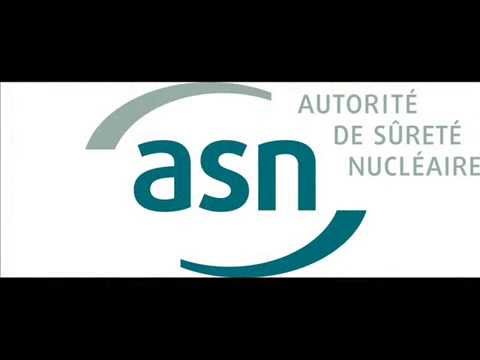France has invested heavily in nuclear power reactors and now gets about fifty percent of its electricity from nuclear reactors. It is difficult to pin down exactly how much electricity France generates and consumes from nuclear power plants because it also exports some of the nuclear generated electricity. The French government runs the EDF company which manages fifty eight reactors. Recently there have been calls in France to reduce nuclear power's share of the mix of energy sources.
The French nuclear watchdog Nuclear Safety Authority (ASN) was just subjected to a review by the International Atomic Energy Agency. The review was carried out by twenty two experts from seventeen IAEA members countries. In general, the ASN was said to be functioning properly but there was a call for more funding and staffing. One big problem is the fact that many of Frances nuclear reactors are approaching their licensed life spans of forty years. The IAEA said that the ASN was satisfactorily managing the reactors now but that in the near future, it would have to increase staffing and funding to deal with the aging reactor fleet.
The head of the ASN "has regularly warned officials of the need to increase the authority's budget and workforce, but has so far obtained only a fraction of its estimates." Currently, the ASN has a workforce of one thousand. The ASN needs to increase staffing to twelve hundred as quickly as possible to deal with the need to review the status of reactors reaching the age of forty. The ASN also called for a new tax on nuclear operators that would be dedicated to nuclear safety.
An expert from the U.S. Nuclear Regulatory Commission who participated in the IAEA review said that a strong safety culture was a high priority for ASN workers. He said " Safety culture has to do with having an organization where the members feel free to come forward with problems and voice those problems to management without fear of being retaliated against."
I am sure that the same recommendations given to France should also be given to the United States with respect to its aging fleet of nuclear reactors. Many U.S. power reactors are reaching the end of their projected life spans and their operators have applied for license renewals. These reactors are breaking down and becoming more and more expensive to repair. The U.S. Nuclear Regulatory Commission should be spending more time and money on reviewing applications for license extensions. In addition, the U.S. has got to be more protective of and encouraging to whistleblowers in the nuclear industry. The treatment of whistleblowers has been shameful with many being fired and not given a chance to make their case. Nuclear power will be a factor in global power generation for decades to come and more time, funding and staffing will be absolutely necessary to prevent more catastrophic nuclear disasters such as Fukushima.
